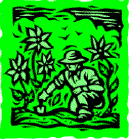|
|
|
|||||
|
|
||||||
|
||||||||||
|
Fast Growing Trees Fastest
Deciduous |
|
Faster
Deciduous |
|
Fast
Deciduous
Evergreen |
|
Fast Growing
Hedging Plants
Deciduous
Evergreen
Arborvitae
Douglas Fir |
|
|
Connected pages clay soil | extreme clay soil | plants for clay soil | compost 1 | compost 2 | compost 3 | improving the soil | pruning | soil types | the basics | Unwanted visitors |
|
|
 There's nothing mystical or magical about having a "green thumb".
Gardening like everything else is a mixture of inspiration and perspiration, and
is biased towards the second of these.
There's nothing mystical or magical about having a "green thumb".
Gardening like everything else is a mixture of inspiration and perspiration, and
is biased towards the second of these.
Green-thumbedness is not something you are or aren't born with, and it can certainly be learnt. Like other skills - golf, ballroom dancing, cookery, rock-climbing etc. some people will be naturally better than others. If you put in the time and effort and are prepared to learn, then you can develop the verdant digits so envied by those for whom everything botanical seems to perish as soon as their back is turned.
 Gardening
certainly isn't a black art and can be learnt by any-one, it just sometimes requires
a mental leap into believing that you really can understand these funny plants and
their peculiar foreign ways.
Gardening
certainly isn't a black art and can be learnt by any-one, it just sometimes requires
a mental leap into believing that you really can understand these funny plants and
their peculiar foreign ways.
The key is that you enjoy what you are doing, and you want to learn.
Others will differ, but I think that there are three aspects to green-thumbedness;
![]() Effort
Effort
![]() Empathy
Empathy
![]() Knowledge
Knowledge

![]() Effort
- One rule of thumb I use is "don't
use a trowel if you can get a spade in". People frequently garden on too small a
scale, tickling the soil as it's easier, rather than getting deeper down into it.
The effort can be spread and is probably better that way so you get to look at your
plants more often. I've always tried to look at it like a free visit to the gym
with an end result other than just a pool of sweat on the floor!
Effort
- One rule of thumb I use is "don't
use a trowel if you can get a spade in". People frequently garden on too small a
scale, tickling the soil as it's easier, rather than getting deeper down into it.
The effort can be spread and is probably better that way so you get to look at your
plants more often. I've always tried to look at it like a free visit to the gym
with an end result other than just a pool of sweat on the floor!
Frequently inspect your plants so that you know as soon as possible when they need attention. When planting, prepare the soil well, and do it every time you plant. Weed frequently, dig out the roots of perennial weeds, don't just cut off the top-growth. Make borders wide, they look so much better. Dead-head frequently for a continuous show of blooms. OK you get the idea now.

![]() Empathy
- This is the most difficult aspect
to learn. It entails looking at life from the plants point of view, seeing why it
is happy or unhappy in its current position. Thinking about the impact of flowering,
pruning, pests etc. But at least it's easy because you can relax when you do it.
Empathy
- This is the most difficult aspect
to learn. It entails looking at life from the plants point of view, seeing why it
is happy or unhappy in its current position. Thinking about the impact of flowering,
pruning, pests etc. But at least it's easy because you can relax when you do it.
Plants are living things, and like other living things - you, your cat, children, parents etc. they have their foibles and preferences. The commonest reasons that plants fail are that they are planted in the wrong place (some-times the wrong country) and they are not allowed to establish themselves properly. Look at them like children when you first get them, appropriate attention early on is worth ten times the remedial help when things have gone wrong.
|
If you can't afford to buy books then there are plenty of web sites to get the information from, though books do have their conveniences! Another important thing is to apply the knowledge up front, think about what plants you are going to buy before you buy them, and where they are going to go before you plant them. |
Christopher Lloyd is almost 80, is a great gardener and plantsman, has an encyclopedic knowledge and love of plants, writes for newspapers and magazines and has a number of books to his credit. So he knows a thing or two. I also like his attitude to gardens and gardening. Here are two quotes from Lloyd that appeal to me:
![]() "If
you want to learn how to slow down in your garden, you have come to the right person.
The first essential is to get other people to do the work for you.
To this end, at least one of them needs to be young and muscular and they
must be either very fond of you or be well paid by you."
"If
you want to learn how to slow down in your garden, you have come to the right person.
The first essential is to get other people to do the work for you.
To this end, at least one of them needs to be young and muscular and they
must be either very fond of you or be well paid by you."
![]() "The
garden's chief attraction is for sitting in and relaxing with champagne or some
other sparkling wine, if it is morning, or some stronger spirit in the evening,
and good conversation with friends."
"The
garden's chief attraction is for sitting in and relaxing with champagne or some
other sparkling wine, if it is morning, or some stronger spirit in the evening,
and good conversation with friends."
Now that's what gardens are for!! Contrast that with the following:
![]() Now I know that some people are obsessive
about their gardens but the other day I read that one Jim Crace who is a novelist
cuts the edges of his lawn with a pair of scissors!!
He explains, "Having tidy edges is important to me.
They make the garden look sharp, spruce and ready for inspection".
And there I was thinking that gardens were to be enjoyed rather than inspected
like an army private's kit.
Now I know that some people are obsessive
about their gardens but the other day I read that one Jim Crace who is a novelist
cuts the edges of his lawn with a pair of scissors!!
He explains, "Having tidy edges is important to me.
They make the garden look sharp, spruce and ready for inspection".
And there I was thinking that gardens were to be enjoyed rather than inspected
like an army private's kit.
Don't be afraid, get stuck in! Don't be impatient!
|
|
|
|
About us. General queries and emails to |
|
Copyright © Paul Ward 2000 - 2012 |